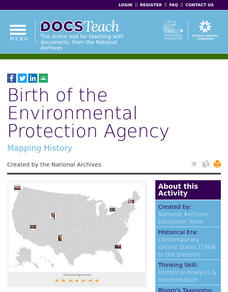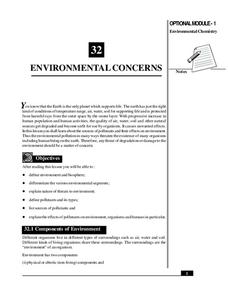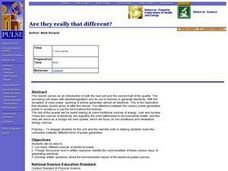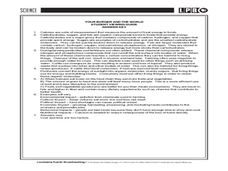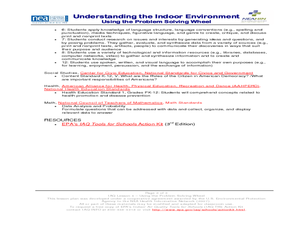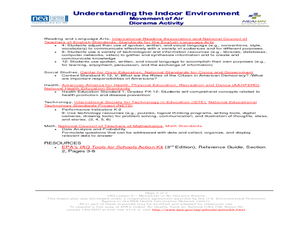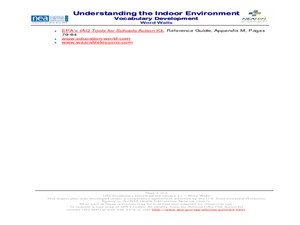DocsTeach
Birth of the Environmental Protection Agency
Seeing is believing when it comes to climate change. An informative activity explores the creation of the Environmental Protection Agency (EPA) and its efforts to document environmental issues with photographs. Academics match images...
National Institute of Open Schooling
Environmental Concerns
Every year, more than 14 billion pounds of garbage is dumped into the oceans of the world, most of which is plastic and toxic to ocean life. Lesson 32 in the series of 36 focuses on environmental concerns, specifically pollution. Under...
Texas Commission on Environmental Quality
Environmental Sciences
Whether you are teaching environmental science in junior high or studying recycling in kindergarten, there is something for all in this set of lessons designed for environmental education. The 110-page packet comes with tips for teaching...
Curated OER
I Won't Live in a Toxic World
Students examine four separate environmental health issues using fish-bowl technique, and discuss roles of both government and citizens in maintaining a pollution-free environment.
Just Health Action
Whose Backyard? Toxic Waste Management Meeting and Environmental Injustice
Toxic waste is a global problem. What to do with environmental hazards and where to put toxic waste is a global concern. To better understand current issues around toxic waste management and how current practices can lead to...
Curated OER
Science: Generating Electricity
Eighth graders examine the various methods of generating electricity and explain their commonalities. They determine what is the most common source of energy and what are the potential environmental health hazards due to electrical...
Curated OER
Fast Food: You Can Choose!
Students research the nutritional value of fast food. They assess which fast foods are best and worst to eat. They organize their data into tables and graphs and explain their findings to other students.
Curated OER
In Katrina's Wake
You will need to go to the National Center for Biotechnology Information website to obtain the article, "In Katrina's Wake." Have your class read it and examine maps of where toxic chemicals were located in Louisiana at the time, taking...
Curated OER
Using the Problem Solving Wheel
Young scholars solve problems about air quality. In this air quality lesson, students receive a scenario from the problem wheel and find solutions to the air quality problem. Young scholars write a paragraph summarizing what they learned.
Curated OER
Movement of Air Diorama Activity
Students make a diorama to illustrate the process of mechanical airflow. In this movement of air lesson, students discuss ventilation and air movement indoors. Students discuss ventilation systems and study pictures of the systems....
Curated OER
Invention Project
Learners study air pollution and design inventions to prevent indoor environment problems. In this air pollution inventions instructional activity, students read about and discuss famous inventors and inventions. Learners then research...
Curated OER
Understanding the Indoor Environment: Word Walls
Students study vocabulary words about indoor air quality. In this indoor environment lesson, students create a word wall with vocabulary words about indoor air quality and pollutants.
Curated OER
Settling The Wasterwater Problem
Pupils name models that are representations of larger objects. They suggest ways that industry, agriculture, and mining affect water quality. Pupils demonstrate the use of lagoons for treating wastewater. Students define the following...


